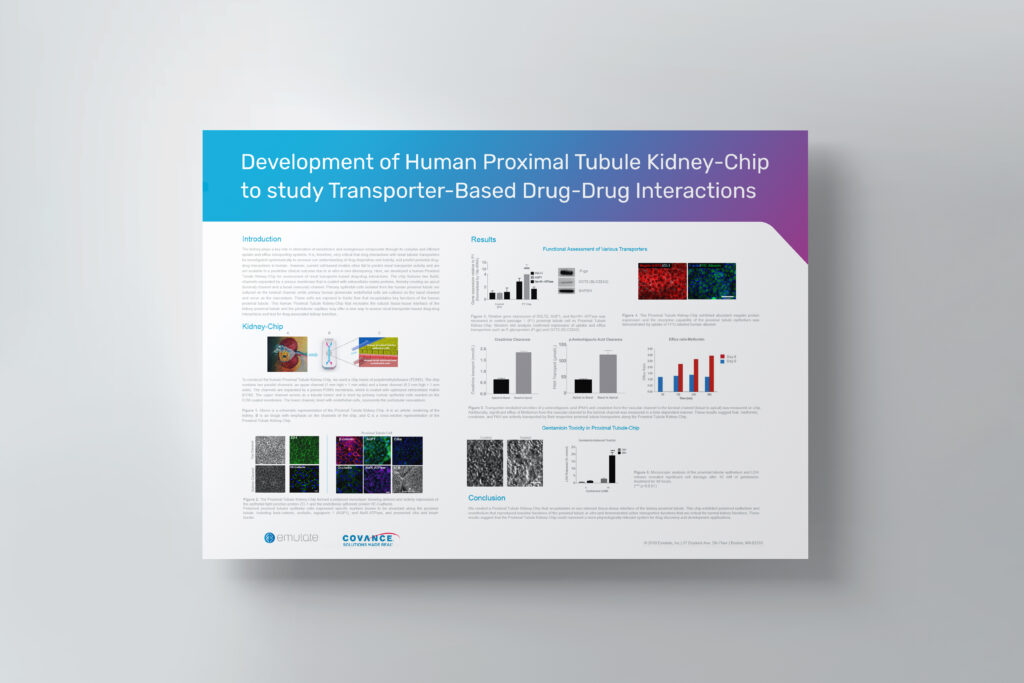Abstract
The kidney plays a key role in elimination of xenobiotics and endogenous compounds through its complex and efficient uptake and efflux transporting systems. It is, therefore, very critical that drug interactions with renal tubular transporters be investigated systematically to increase our understanding of drug disposition and toxicity, and predict potential drug-drug interactions in humans. However, current cell-based models often fail to predict renal transporter activity and are not scalable to a predictive clinical outcome due to in vitro–in vivo discrepancy. Here, we developed a human Proximal Tubule Kidney-Chip for assessment of renal transporter-based drug-drug interactions. The chip features two fluidic channels separated by a porous membrane that is coated with extracellular-matrix proteins, thereby creating an apical (luminal) channel and a basal (vascular) channel. Primary epithelial cells isolated from the human proximal tubule are cultured on the luminal channel, while primary human glomerular endothelial cells are cultured on the basal channel and serve as the vasculature. These cells are exposed to fluidic flow that recapitulates key functions of the human proximal tubule. This human Proximal Tubule Kidney-Chip that recreates the natural tissue-tissue interface of the kidney proximal tubule and the peritubular capillary may offer a new way to assess renal transporter-based drug-drug interactions and test for drug-associated kidney toxicities.

